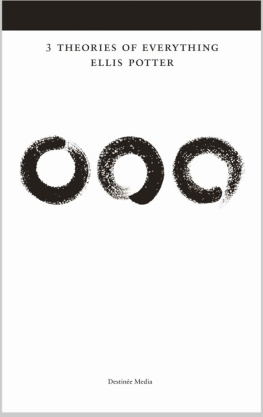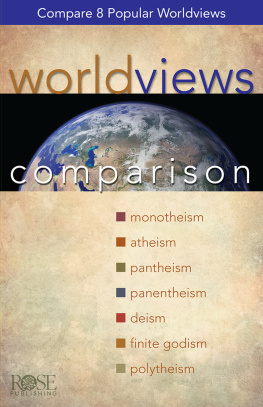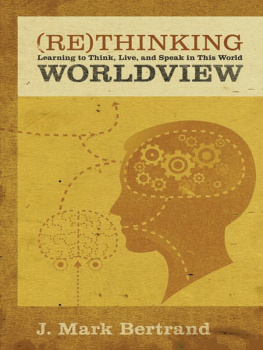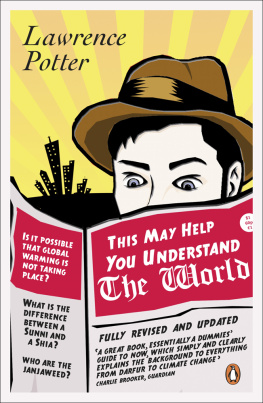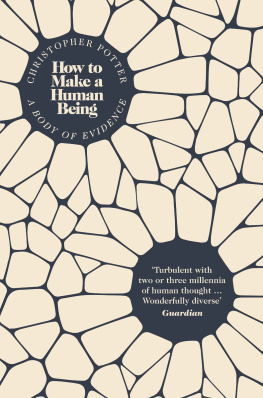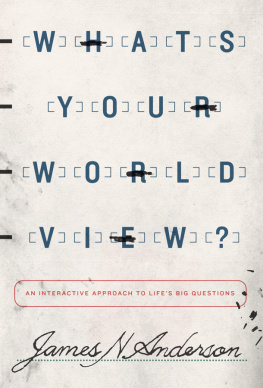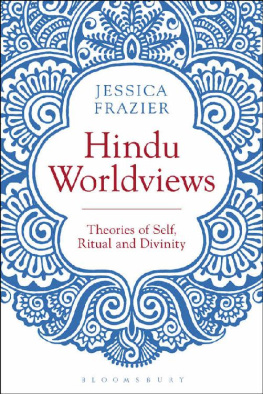3 THEORIES OF EVERY-THING
ELLIS POTTER
Destine Media
2012 ellis potter
Without limiting the rights under copyright reserved above, no part of this publication may be reproduced, stored in, or introduced into a retrieval system, or transmitted in any form or by any means (electronic, mechanical, photocopying, or otherwise), without the prior written permission from the publisher, except where permitted by law, and except in the case of brief quotations embodied in critical articles and reviews. For information, write:
Reasonable care has been taken to trace original sources and copyright holders for any quotations appearing in this book. Should any attribution be found to be incorrect or incomplete, the publisher welcomes written documentation supporting correction for subsequent printing.
Published by: Destine Media
www.destineemedia.com
Chief editor: Peco Gaskovski
Design, typography: Katharine Wolff
Inside diagrams: Ellis Potter
Sketch of the author: Andrzej Bednarczyk
All rights reserved by the author.
isbn 978-0-9832768-5-2
TABLE OF CONTENTS
WHEN I WAS A BOY I asked the kinds of questions that many children ask. Children want to know how far is far, how small is small. They especially want to know why? I never grew up. I am still asking these questions, absolute questions, about life itself. I want to know what reality looks like when you think down to the bottom and out to the edges. I want to know what things mean in the final and absolute context. It can be difficult to ponder absolute questions because they can challenge our deepest beliefs. They can be threatening. But its exciting to ask absolute questions. I believe its healthy. I hope that if any of you have grown up that you will go back to being a child.
Small children start off with the hope and trust that reality makes sense. They believe that Mommy and Daddy are omniscienta belief that is smashed sometime in childhood. It turns out to be like Santa Claus. By the time they are adults, most people have lost their hope and trust about how everything fits together. Their concept of reality shrinks to a narrow cultural viewpoint, to self-protection and control, or to indifference. They live in a smaller reality because the big reality, the absolute reality, is too difficult.
An absolute is a category that is so big that everything fits inside and nothing is left over. The category of absolute reality includes everything in existence. Its a theory of everything. Many people think there arent any absolutes and they say there are absolutely no absolutes. There is, however, a problem with this statement, because if its absolutely true, then it must be absolutely false.
I believe the existence of absolutes is most likely, but is inconvenient and disagreeable to our egos. People nowadays are often motivated not to believe in absolutes, because if there are true absolutes, then we are responsible to the absolute. If there are true absolutes outside ourselves, then we dont invent ourselves. On the other hand, if there are no absolutes, we are free. We invent ourselves, and the meaning of everything is our reaction to it. This idea is obviously quite attractive. It also means we can stop asking questions.
But some people keep asking. They want to know what life is really about. What does it all mean? They want the truth. They dont want to just fit in with their culture or believe what their parents taught them. They want to know what is real and actual, and they dont care what it turns out to be like. If its meaningless and dead, so be it. If its purposeful and glorious, so be it. And so they keep asking questions right to the bottom and out to the edges of reality, hoping to reach the truth, the absolute Truthwhether there is hope in it or not.
The Three Circles
When I looked for absolutes, I discovered there werent many. I believe it comes down to three: Monism, Dualism, and Trinitarianism. They are quite different, but they do have some things in common, not least of which is the suffix - ism . -Ism means that whatever comes in front of the suffix - ism is the center of reality and the measure of everything. If science is the measure of everything, you have scientism . If the human being is the measure of everything, you have humanism . In terms of worldviews, there is one-ism , two-ism , and three-ism .
The most important thing these three worldviews have in common is their view of the history of reality. They each understand that there was a perfect beginning and then something went wrong, so that we now live in a situation that is not the way it was intended to be. We suffer. We are alienated. We worry. We feel confused. We want things to be made right again. Is there anybody who has never complained about how things are in the world? Very few people believe everything is perfect in the world, and most of them are either pretending, deluded, or never read the news. I believe its normal to complain about things because things are obviously not right. Its understandable that people want things to be made right again.
The Western tradition of thought recognizes that the idea things were once perfect and need to be made right again is the biblical view of history. In the beginning, a perfect God made a perfect creation and perfect people, and then something went wrong. There was rebellion, sin, and egotism. As a result, things are not right and we suffer, and we look for things to be made right again in Christ. This movement expressed in abstract terms is:
perfectimperfectperfect
Or better yet:
homeawayhome again
In other words, its a pattern of homecoming, of being away on a journey and returning to the place where you started, usually in a transformed way. You see this pattern in great stories, such as Homers Odyssey , and you hear it in most music, whether in simple folk songs or in the aba pattern of the Viennese sonata form. Music and stories are so powerful because they are microcosms of the basic structure of the universe.
Now, if we recognize that things are not right, an important question is: What was reality like when it was perfect? If we know the answer, then we can have a better idea of what is wrong and what we can do about it. If we dont know the answer, then we can only say, Ouch, I hurt. Do you remember Ren Descartes? Descartes said, I think, therefore I am. But I prefer to say, I hurt, therefore I am. I think thats closer to our experience.
Theres an apocryphal account about Descartes. He went into a bar one day and ordered a beer. After he finished the beer the bartender asked, Do you want another one? Descartes replied, Oh, I think notand he disappeared.
But I doubt we would vanish if we stopped thinking. We would still exist. We would still feel. We would continue to suffer. There are people in the world who actually seek out painful experiences so that they can feel alive. They cut themselves and pierce themselves with razors and needles because it makes them feel like they exist. This is not a good solution to the problem of suffering, but we can sympathize with the desperation and appreciate the hint of truth behind it. In an imperfect world being alive and feeling pain are interwoven. They are tied up like a knot. Is there any way to untie this knot? Is there such a thing as existence without pain? What is the solution to the problem of suffering?
Monism, Dualism, and Trinitarianism all agree that reality was perfect in the beginning, but they disagree about the nature of that perfection, the causes of suffering, and what it means to recover the original perfection. Each worldview, in other words, offers a unique solution, a unique hope, to the problem of suffering. We can represent Monism, Dualism, and Trinitarianism by showing a circle in three different ways.

Next page
